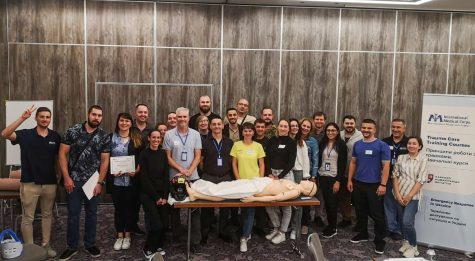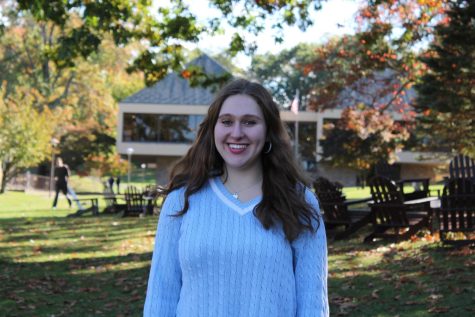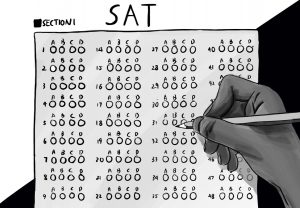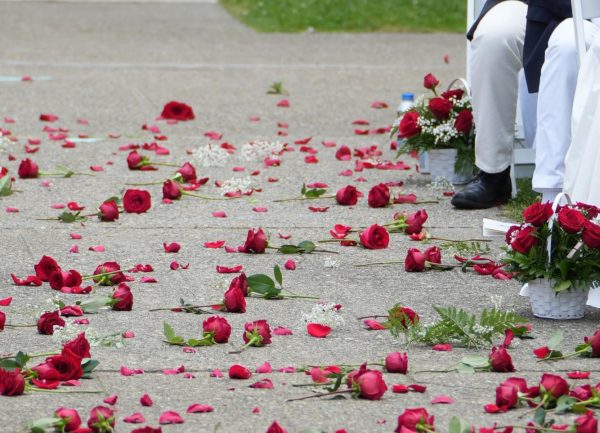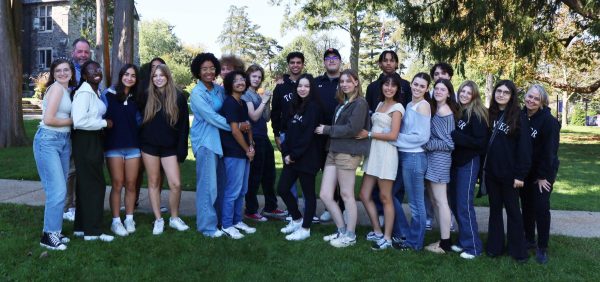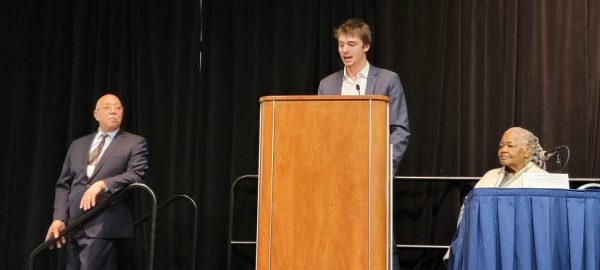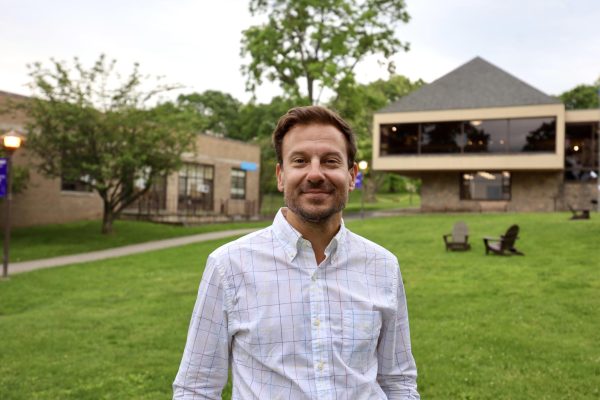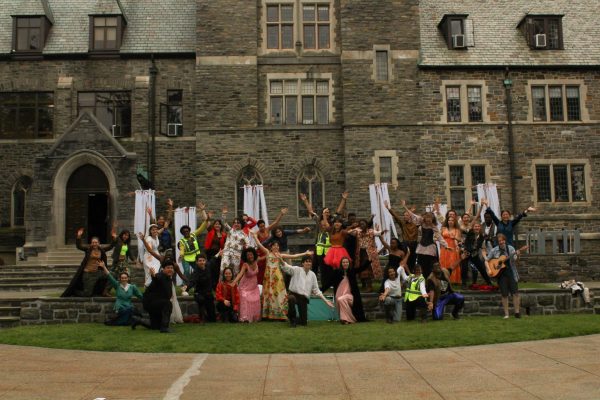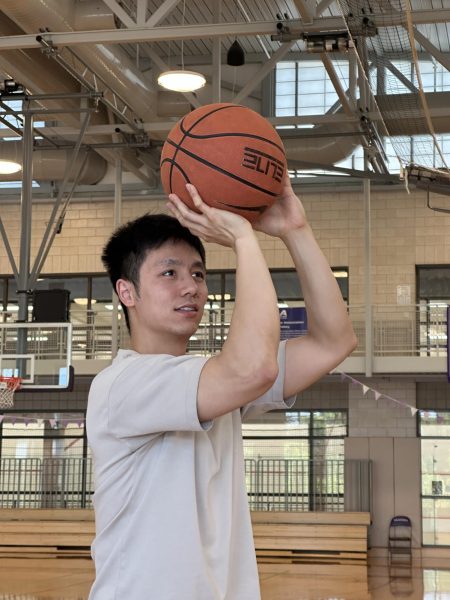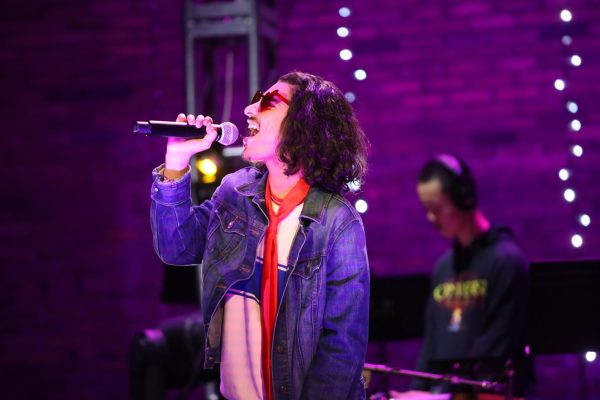Masters parent, Roxanne Todor assists war-affected Ukrainians
November 4, 2022
Masters parent and neurosurgeon Roxanne Todor went on a two week trip this past September with Harvard Humanitarian Initiative to Kyiv, Ukraine, where she worked directly within the country as a medical professional assisting those affected by the war.
Since the start of the full scale war on February 24, 2022, millions of Ukrainians have been displaced. Over 6 million Ukrainians have fled their homes. According to the International Rescue Committee, this crisis has led to the largest and fastest displacement since World War II, and the Ukrainian people are in dire need of humanitarian assistance. This humanitarian crisis has severely impacted Ukraine’s already weak health system and the Ukrainian people are in desperate need of medical services and equipment.
In collaboration with the International Medical Corps, Harvard’s Humanitarian Initiative recruited certified “Advanced Trauma Life Support” instructors, including Todor, who was joined by five other physicians from across the US in addition to hospital personnel and nurses as part of her medical educational mission.
“We worked as a group and taught three simultaneous courses for both nursing medics, ambulance drivers as well as physicians,” Todor said.
Advanced Trauma Life Support is a standard course that’s taught in the United States. Todor and her colleagues had to translate the course into Ukrainian, in order to provide Ukrainian and English courses. “Most of the people who know how to manage severe traumatic injuries are already at the front taking care of injured war victims, but they don’t have enough people,” Todor said. “We trained physicians who have less experience with trauma to be comfortable dealing with it, as well as making sure that the support teams, the ambulance drivers, and nurses are all working on the same kind of paradigm.” She continued,“This is important because one in four people who die probably die unnecessarily from injuries that could be treated if they had enough trained people.”
Todor endured a difficult process to work in Ukraine: first she flew to Warsaw, Poland and then she bicycled to Poesia, a smaller city close to the border. From there they took a van to the border, where they walked a mile uphill into Ukraine. Once Todor entered Ukraine, where a van was provided for the team of doctors to reach Kyiv, a nine-hour drive. Todor and her group met with Ukrainian physicians in order to modify their teaching plan based on the Ukrainians’ experience and feedback.
While teaching Advanced Trauma Life Support, Todor led a mock mass casualty exercise, assigning roles to the class including trauma resuscitation. “The best way to teach people after lecturing is to give hands-on practice,” said Todor. In basic lectures, Todor went over head, abdominal, and thoracic injuries. “I always teach breathing circulation as the primary way to save somebody’s life, and so within each injury we go through, we try and get them to do that. So it becomes second nature, kind of like CPR,” said Todor.
Todor taught two full classes of ATLS to about 35 physicians. Todor also taught a course to 70 civilians called “Stop the Bleed”. This course is equivalent to CPR for trauma. Todor also documented a great need for medical supplies. The extra supplies she used for lessons were given away. “I think right now what they need is blood. They need to try to get people to donate locally. They also need the supplies like tourniquets to stop the bleeding,” said Todor.
The crisis in Ukraine has dramatically limited health services. “I think their system is in the process of being modernized but it’s still different than the US system. They don’t have typical emergency rooms like we do here. They have a very specialized hospital system. Typically, there’s an ambulance doctor who goes out and then they decide where the patient will go, but that doesn’t work in a combat situation or when you have multiple casualties or trauma. Every hospital needs to be able to help out so that no one facility is overwhelmed. So what we were doing as part of our teaching was not just hands work that focused on how to manage individual patients.” Todor also taught “Triage” and mass casualty management. “Triage is how to use the resources optimally to save as many people as possible,” said Todor
Todor has personal connections to Eastern Europe. In fact, her daughter’s grandmother is from Crimea. “My father also came from Hungary as a refugee In 1956 during the Hungarian Revolution,” said Todor. The father of Todor’s eldest daughter, Kyla Barantsevitch ‘21, is initially from Russia.“My grandparents have always wanted to take my sister and I to Russia to see where my family’s from. Obviously, that’s no longer feasible. I was also planning on doing a study abroad next year in Russia, but that’s also no longer a possibility,” said Barantsevitch.
Todor’s family was taken by surprise when she first told them about her educational mission. “We were worried because obviously we were concerned for her safety. We really did not think it was a good idea,” said Barantsevitch. She continued, “Initially we were critical of her decision to go, but we were all very proud that she was going. We are so lucky to have someone like her in our lives to look up to who was willing to put herself in a dangerous situation to help others because she cares so much. Although it was hard, I admired her a lot for what she was doing.”
As of now the areas where Todor worked are under attack. Russia has intensified its missile attacks targeting energy and water infrastructure. Kyiv was getting back to normal before Russia renewed its attacks. “I’m thinking of the interpreters I worked with who were such wonderful, nice, friendly, bright people who really want to see their country move forward. It’s heartbreaking,” said Todor. In the future, Todor would like to continue her work in Ukraine. “If I find an opportunity where I can be helpful and it’s reasonably secure, then I will hopefully be able to return maybe after the winter,” said Todor.
